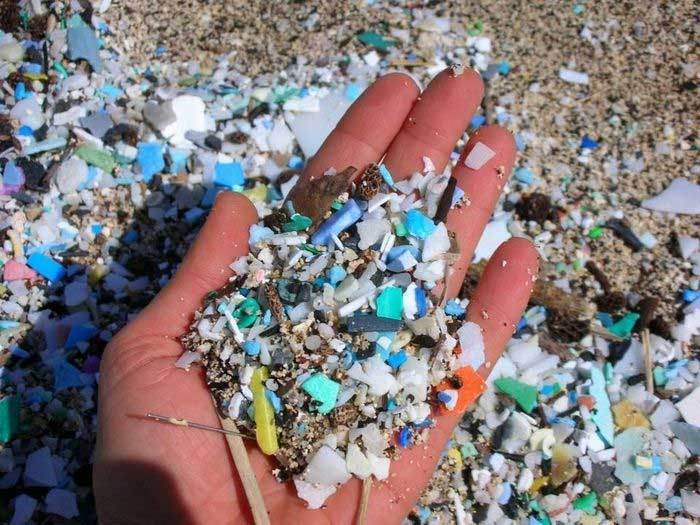Microplastics have been discovered in the human body. Recently, research on mice has shown that microplastics can also be transmitted from mother to offspring through the placenta.
Plastics, specifically microplastics, are gradually infiltrating our lives. Medical Daily reports that a recent study published in the journal Nanomaterials indicates that scientists have found that ultra-small microplastics (MNPs) can be transmitted from mother to child during pregnancy.
The study shows that MNPs not only pass through the gut and placental barriers within 24 hours but also permeate the liver, kidneys, heart, lungs, and brain of the fetus.

Microplastics can permeate body organs. (Image: oceanbites).
According to Earth.com, Philip Demokritou, Chair of Henry Rutgers and Professor of Nano Science and Environmental Biomedical Engineering at Rutgers School of Public Health, stated: “There is still much we do not know, but this discovery is certainly concerning. We will need to continue researching this topic.”
The study found that on average, a person ingests and inhales about 5 grams of MNPs per week, equivalent to the weight of a credit card.
Professor Demokritou noted: “The use of plastics has become more common since the 1940s due to their low cost and versatility. Over the past 60 years, 9 billion tons of plastic have been produced, with 80% discarded into the environment and only 10% recycled.”
In the study, scientists marked pregnant mice that were exposed to nano plastics. They assumed that carboxylated red fluorescent polystyrene particles sized 25 nm (PS25C) would breach the gut barrier of the mother mice, pass through the placenta, and enter the blood and tissues of the fetus.
Five mice consumed a liquid containing 25 nm polystyrene particles on day 19 of pregnancy. A control group of mice did not consume plastics. After 24 hours, the mice that had ingested the plastic were euthanized, and researchers began analyzing the tissues of both the mother and offspring.
It was found that MNPs had infiltrated the liver, kidneys, heart, lungs, and brain of the unborn mice.
Professor Demokritou explained: “Petroleum-based plastics are not biodegradable, but weather conditions and light oxidation will break down plastics into smaller pieces.”
These smaller pieces, known as nano microplastics, have been found in the lungs, placenta, and blood of humans, raising concerns about human health.
The researcher added: “We are working to assess the health risks of this pollutant to inform policymakers and develop strategies to mitigate harm.”
However, researchers acknowledged that they only used polystyrene MNPs of a certain size. Therefore, the study did not include data on various types of MNPs found in the environment.
This research is the first to demonstrate that microplastics can cross the placental barrier and infiltrate the tissues of female offspring.
Professor Demokritou shared: “Our goal is to enhance the reuse and recycling of plastics, and even replace them with biodegradable polymer plastics. This is part of a societal aim towards sustainability.”


















































